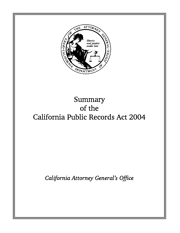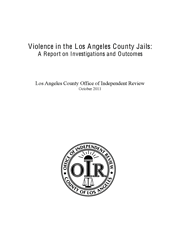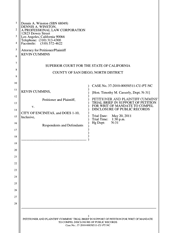California public records
A guide to your rights as a citizen
Chase down public records and share them with The Times
Since the public corruption scandal broke last summer in the city of Bell, hundreds of readers have voiced concerns to The Times about potential problems at the government agencies in their communities. The Times encourages readers to share government records you consider newsworthy or interesting. Send us documents and a Times staffer will review them and post them to this site, which also includes files obtained by our reporters.
— Shelby Grad and Sam Allen (March 14, 2011)
What rights do Californians have to access public records?
The California Public Records Act requires that “public records are open to inspection at all times.” The law provides members of the public access to government documents and entitles them to a copy of records. It’s a crucial tool for journalists and for citizens seeking a better understanding of their state and local government — and it’s relatively simple to use.
The act applies to both state and local agencies, joint powers agencies, and special districts, and it covers most types of records, including employee contracts and payment histories. Most cities and counties have an office designated to handle public records requests.
“The best thing to do is to go to the agency first to see if they have any special guidelines or any preference for how they receive their requests,” said David Green, executive director of the First Amendment Project, a nonprofit based in Oakland. “Many will publish their guidelines.”
Once you have located the exact records you need, it’s helpful, but not required to submit a written request, citing the California Public Records Act. Several websites publish forms for these requests, Green said, and his group has a guide available.
The city or agency has 10 days to respond to your request. In some cases, the agency may request an additional 14 days to produce records. A variety of records are exempt from disclosure, according to state government code, including personal information and records pertaining to ongoing litigation.
Share your documents
If you have a public record you would like to share with The Times, attach it to an email to documents@latimes.com or mail it to 202 W. 1st St. Los Angeles, CA 90012, attention City Desk.
Reader-reported documents
About documents.latimes.com
The Times has published thousands of pages of public documents, ranging from Ruben Salazar’s killing to the Bell scandal. Track the Times’ latest at documents.latimes.com.


